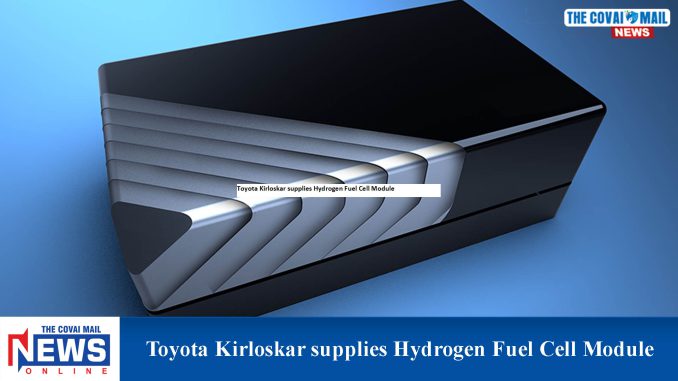
In line with its mission of “Producing Happiness for All”, which seeks to contribute towards establishing a ‘future-proofed’ sustainable society that is in harmony with nature, Toyota has been developing green and clean technologies promoting sustainability across regions. Being pioneers in electrified and other green vehicle technologies, the company strives to offer an array of electrified and alternate fuel vehicles to minimize CO2 emissions by taking into consideration the energy generation, infrastructure readiness and consumer adoption of each country/region. Further, globally Toyota is committed to Carbon Neutrality by 2050 and aims to achieve Net Carbon Zero in Manufacturing Operations by 2035.

Fuel cell electric vehicles (FCEVs) are powered by hydrogen which produces no tailpipe emissions, being the cleanest fuel. Green hydrogen is generated from renewable energy sources and can provide storage requirements for solar and wind energy which is critical for their rapid take-off at a greater scale. Hydrogen has higher energy density over batteries, can store energy for a longer duration and is portable, thus making it an excellent energy carrier for diverse applications. With these advantages, hydrogen can play a significant role in our country’s goal of achieving energy self-reliance and mitigating carbon emissions.
Toyota’s hydrogen fuel cell-based technology can help enable a faster shift away from fossil fuels, promoting renewable energy, achieving energy self-reliance, and mitigating carbon emissions. Moreover, given India’s energy mix, its unique consumer profile and needs, infrastructure readiness, and the Government’s diversified efforts towards becoming ‘AtmaNirbhar’ in energy by 2047, Toyota is advancing mobility solutions with greater agility, thereby introducing, and supporting multiple clean technology pathways by joining hands with other stakeholders with mutual interest and aim to contribute to our nation’s carbon neutral targets.
Commenting on this clean mobility initiative, Sudeep S. Dalvi, Senior Vice President and Chief Communication Officer of Toyota Kirloskar Motor, said “We are extremely happy to supply Hydrogen Fuel Cell Module to Ashok Leyland for building Fuel Cell Commercial Vehicle for proto examination and feasibility study purpose. Reducing tailpipe emissions and carbon footprint has always been extremely important for us at Toyota and we are also committed to contributing towards the national target of energy self-reliance. Globally, the energy industry is working on the technological innovations of carbon-neutral fuels such as hydrogen and biofuels. Through this initiative, we hope to promote wider use of hydrogen as a fuel which can help to create a hydrogen society in harmony with nature.”
The Government of India announced the National Hydrogen Mission (NHM) in the Union Budget for 2021-2022. NHM has drawn a road map for the usage of hydrogen as an energy source. This mission aims to push for the implementation of hydrogen energy that will drive the country in the right direction of making the best out of the renewable energy sector. Aligning with this, Toyota is enhancing its technological strengths to capitalize on the most abundant elements on earth for a better, safer, and cleaner alternative fuel option.



